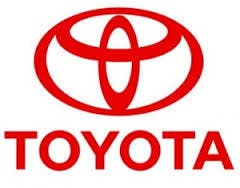Toyota Motor Corporation (ADR) (NYSE:TM) isn’t just one of the world’s most respected auto brands; it’s one of the world’s strongest brands of any kind. Japan’s largest automaker has become the industry’s reference point for automotive product quality and manufacturing efficiency, and many of the methods it pioneered have since become industry standards.
General Motors Company (NYSE:GM) and Ford Motor Company (NYSE:F) turned around moribund manufacturing operations by emulating, and then building on, Toyota Motor Corporation (ADR) (NYSE:TM)’s vaunted approaches. But for all of its strength, Toyota has faced a sea of troubles in recent years: A massive tsunami in northern Japan decimated its supplier network and left some of its assembly lines idled for months, and global recall scandals have dented its reputation for quality and integrity.

But is Toyota Motor Corporation (ADR) (NYSE:TM) a buy? That’s a more complicated question. To help answer it, last fall I created a premium research report to help investors understand the challenges facing Toyota Motor Corporation (ADR) (NYSE:TM), and the opportunities presented by the company.
That report has just been updated. What follows is an excerpt from the latest edition. We hope you enjoy it.
Toyota is immensely strong, but challenges persist
In the U.S., as in most of the world, Toyota’s value propositions are quality and efficiency. Its cars may not be the most exciting, but they are safe choices — likely to last a long time, with minimal maintenance, while delivering good fuel economy. While the sudden-acceleration recall fiasco of 2010 seemed to dent Toyota’s reputation for a time, those impacts largely seem to have faded — helped by Consumer Reports surveys that once again rate Toyotas at the top of the heap for quality. A recent study by Experian found that Toyota had regained the top spot in Corporate Loyalty for the first time since the third quarter of 2009.That story, with variations, replays itself over and over around the world. In countries from Indonesia, where Toyota’s Avanza is the runaway best-seller, to South Africa, where three of the top five sellers are Toyotas, Toyota’s simple value proposition continues to find plenty of customers.
One exception to that rule has been Europe, where Toyota’s presence is minimal. In recent years, that has worked to the Japanese giant’s advantage, as market leaders VW, Ford, and GM all confront a recession-ravaged auto market that has led to significant losses. Toyota’s decision to largely steer clear of Europe increasingly looks like a smart one, as GM and Ford have both struggled to contain losses running in the hundreds of millions of dollars every quarter.
It’s a good story. But on the other hand, CEO Akio Toyoda and his team still have major challenges to confront.
The company announced a massive global recall of over 7 million vehicles in October of 2012, including 2.5 million in the U.S., to repair a faulty power-window switch that could be a fire hazard. That recall led at least one high-profile analyst to downgrade Toyota’s shares amid worries that it could bring 2010’s safety scandal back to the fore — Toyota may have known about the defect for several years without taking action.
So far, the recall seems not to have had a major impact on Toyota’s sales. The same couldn’t be said for a controversy in China that hit Toyota hard last fall. A dispute between Japan and China over ownership of a group of islands led to sharp anti-Japanese sentiments in the Middle Kingdom — sentiments that have played out harshly for the Japanese automakers. Toyota reported a 49% decrease in sales in September versus the year-ago figure, comparable to declines reported by Nissan and Honda Motor Co Ltd (ADR) (NYSE:HMC) . It responded by halving its production in China, and its 2012 sales fell well short of the company’s earlier estimates.Meanwhile, key competitors like VW, Hyundai, and Ford have all seen big sales increases in China as they have moved to take advantage of their Japanese rivals’ troubles. It’s still unclear whether this was a passing blip or a more enduring shift in consumer sentiments that will affect market share over the long haul. But it represented a sizable sales loss for Toyota — one that could, should the shift prove enduring, damage its chances to challenge GM and VW for the global auto sales crown in future years.
The article Toyota’s Opportunity: An Update originally appeared on Fool.com and is written by John Rosevear.
Fool contributor John Rosevear owns shares of General Motors and Ford. Follow him on Twitter at @jrosevear. The Motley Fool owns shares of Ford. Motley Fool newsletter services recommend Ford and General Motors.
Copyright © 1995 – 2013 The Motley Fool, LLC. All rights reserved. The Motley Fool has a disclosure policy.



